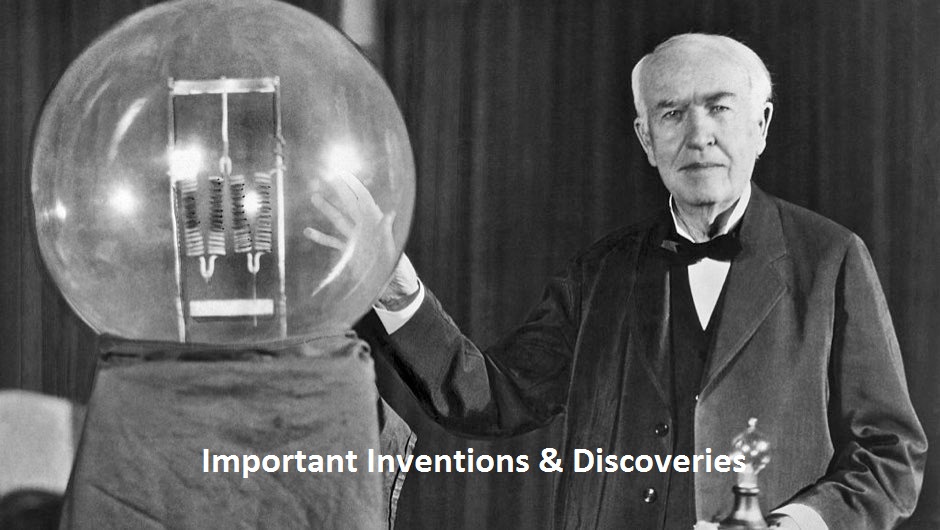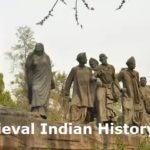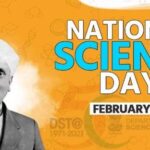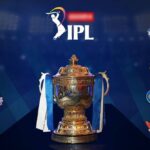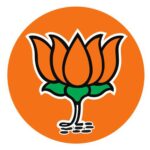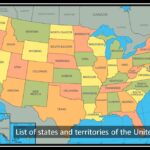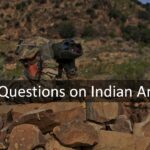It is often said that curiosity is the mother of Invention. However, it is true that not all of us are curious enough to do revolutionary discoveries. Thankfully, there have been many notable people on the earth who changed mankind completely. GK questions based on the various inventions and discoveries are often asked on various competitive exams including SSB, RRB, Bank, UPSC, etc.
As per many experts, “Inventions & Discoveries” is one of the crucial sections of Static Gk. You can maximum marks in this section with minimum effort. To help students prepare, we are sharing the list of top inventions and Discoveries. In addition to this, we are also going to share important GK questions on Inventions and Discoveries that are often asked in the examinations.
List of all important Inventions and Discoveries in the world
Most of the important discoveries and inventions in the history of mankind are given below. Candidates should check the list of Important Inventions & Discoveries PDF for future references.
-
Barometer by Evangelista Torricelli in 1643
-
Vacuum pump by Otto von Guericke in 1650
-
Friction machine by Otto von Guericke in 1663
-
Piano by Daniel Gabriel Fahrenheit in 1709
-
Artificial refrigeration machine by William Cullen in 1755
-
Steam engine by James Watt in 1765
-
Weighing scale by Richard Salter in 1770
-
Boring machine by John Wilkinson in 1774
-
Screw-cutting lathe by Jesse Ramsden in 1775
-
Mechanical air compressor by John Wilkinson in 1776
-
Steamboat by Claude de Jouffroy in 1783
-
Manned hot air balloon by Joseph-Ralf and Jacques-Étienne Montgolfier in 1783
-
threshing machine by Andrew Meikle in 1786
-
Electrolysis technique by Martinus van Marum in 1785
-
Sewing machine by Thomas Saint in 1790
-
Modern semaphore telegraph by Claude Chappe in 1792
-
Modern Cotton gin by Eli Whitney in 1793
-
Hydraulic Press by Joseph Bramah in 1795
-
Plywood by Samuel Bentham in 1797
-
First motorized air compressor by George Medhurst in 1799
-
Paper Machine by Louis Nicolas Robert in 1799
-
Arc lamp by Humphry Davy in 1802
-
Morphine by Friedrich Serturner in 1804
-
Steam Locomotive by Richard Trevithick in 1804
-
Wristwatch by Abraham-Louis Breguet in 1810
-
Printing press by Friedrich Koeing in 1811
-
Safety lamp by William Reid Clanny in 1812
-
Modern planing machine by James Fox in 1814
-
Electric telegraph by Francis Ronalds in 1816
-
Stirling engine by Robert Stirling in 1816
-
Tunnelling shield by Marc Isambard Brunel in 1818
-
Electromagnet by William Sturgeon in 1825
-
Friction Match by John Walker in 1826
-
Reaping Machine by Patrick Bell in 1828
-
Compound Air Compressor by William Mann in 1829
-
Computer (Father of the computer) by Charles Babbage
-
Lawn Mower by Edwin Budding in 1830
-
Electromagnetic induction by Michael Faraday in 1831
-
Morse code by Samuel Morse in 1837
-
Steam Hammer by James Nasmyth in 1839
-
Photovoltaic effect by Edmond Becquerel in 1839
-
Portland cement by Issac Charles Johnson in 1845
-
Superphosphate (man-made fertilizer) by John Bennet Lawes in 1842
-
Fuel Cell by William Robert Grove in 1842
-
Printing Telegraph by Alexander Bain in 1841
-
Pneumatic drill by Jonathan J. Couch in 1848
-
Lead acid battery (1st Rechargeable battery) by Gaston Plante in 1859
-
Geissler tube by Heinrich Geissler in 1857
-
Reinforced concrete by Francois Coignet in 1853
-
Chemical vapor deposition by Robert Bunsen in 1852
-
Hydraulic Accumulator by Sir William Armstrong in 1850
-
Dynamite by Alfred Nobel in 1867
-
Pasteurization by Louis Pasteur in 1864
-
Carbon Fibers by Joseph Swan in 1860
-
Pelton Wheel by Lester Allan Pelton in 1878
-
Phonograph by Thomas Edison in 1877
-
Telephone by Alexander Graham Bell in 1876
-
First Electric Tram by Fyodor Pirostsky in 1875
-
Crookes radiometer by Sir William Crookes in 1873
-
Stainless steel by Stainless steel in 1872
-
Steam Engine by Sir Charles Parsons in 1884
-
Safety Bicycle by John Kemp Starley in 1885
-
Carbon arc welding by Nikolay Banardos in 1881
-
First petrol or gasoline powered auto-mobile by Karl Benz in 1886
-
Zipper by Whitcomb in 1891
-
Radiograph (x-rays) by Wilhelm Conrad Rontgen in 1895
-
Ballpoint Pen by John J. Loud in 1888
-
Cinematograph by Léon Bouly in 1892
-
Diesel engine by Rudolf Diesel in 1893
-
Rotary-wing aircraft by Paul Cornu in 1907
-
Cellophane by Jacques E. Brandenberger in 1908
-
Haber process by Fritz Haber in 1909
-
Kaplan turbine by Viktor Kaplan in 1913
-
Crystal Oscillator by Alexander M. Nicholson in 1917
-
Quartz clock by Warren Marrison and J.W. Horton in 1927
-
Ball Screw by Rudolph G. Boehm in 1929
-
Electron Microscope by Ernst Ruska in 1931
-
FM Radio by Edwin H. Armstrong in 1933
-
Supersonic combusting ramjet by Frank Whittle in 1930
-
Polyester by British scientists John Whinfield and James Dickson in 1941
-
Atomic clock by United States’s National Bureau of Standards in 1948
-
Holography by Dennis Gabor in 1947
-
Video tape recorder by Norikazu Sawazaki 1953.
-
Hard disk drive by IBM in 1956
-
Sputnik 1 (first artificial satellite) by Soviet Union in 1957
-
Intermodal container by Malcom McLean in 1955
-
Video tape recorder by Norikazu Sawazaki in 1953
-
Functioning laser by Theodore Maiman in 1960
-
Email by Ray Tomlinson in 1971
-
Self-driving car by the Tsukuba Mechanical Engineering Laboratory in 1977
-
Flash Memory by Fujio Masuoka in 1980
-
World Wide Web by Sir Tim Berners-Lee in 1990
-
Stereolithography by Chuck Hull in 1983
-
Bluetooth by Ericsson Mobile in 1994
-
Lithium-ion battery by John B. Goodenough, Rachid Yazami and Akira Yoshino in 1985
-
Blockchain by Satoshi Nakamoto in 2008
-
Blu-ray optical disc format by Sony in 2000
-
Portable MP3 player by SaeHan Information Systems in 1998
-
Extreme ultraviolet lithography machine by ASML in 2010
-
First RNA vaccine for Covid – 19 by Pfizer and BioNTech in 2020.
Sample GK Questions on Important Inventions & Discoveries
Question – 1: Who invented the Typewriter?
- Peter Mitterhofer
- Henri Giffard
- Mary Anderson
- Edward Butler
Answer: 1 (Peter Mitterhofer)
Question – 2: In which year did Graham Bell discover the telephone?
- 1870
- 1875
- 1876
- 1880
Answer: 3 (1876)
Question – 3: Who discovered the sewing machine?
- Claude Chappe
- Thomas Saint
- Eli Whitney
- Alois Senefelder
Answer: 2 (Thomas Saint)
Question – 4: Who invented the first petrol or gasoline powered auto mobile car?
- Karl Benz
- Heinrich Hertz
- Nikolay Benardos
- Thomas Edison
Answer: 1 (Karl Benz)
Question – 5: Which company is credited with the invention of hard disk?
- Apple
- Microsoft
- IBM
Answer: 3 (IBM)
Question – 6: FM Radio is patented by which inventor?
- Edwin H. Armstrong
- Ernst Zernike
- Frank Whittle
- Konarf Zuse
Answer: 1 (Edwin H. Armstrong)
Question – 7: Sir James Martin invents the ejector seat, inspired by the death of his friend and test pilot Captain Valentine Baker in an aeroplane crash in 1942. Which country does Sir James Martin belongs to?
- England
- Scotland
- Ireland
- Argentina
Answer: 3 (Ireland)
Question – 8: The pocket calculator is invented in which of the following country?
- USA
- Japan
- Germany
- China
Answer: 2 (Japan)
Question – 9: Who is known for the discovery of the theory of evolution?
- Charles Darwin
- Galileo
- Christiaan Ejikman
- Henrik Dam
Answer: 1 (Charles Darwin)
Question – 10: Which scientist is credited with the invention of a Xerox Machine?
- Wilhelm Conrad Roentgen
- Mary Anderson
- Chester Carlson
- Tim Berners Lee
Answer: 3 (Chester Carlson)

